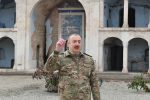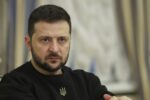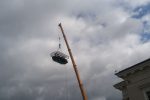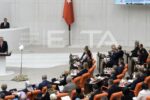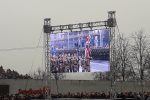
By Gintaras Visockas
On 20 October I attended a remotely organized conference: ‘South Caucasus: political – legal aspects after the 2020 autumn war’. This conference, organized by Azerbaijan, was led by Ambassador, professor Namik Aliyev. Political scientists, scientists, journalists from Georgia, Israel, Poland, Moldova, Russia, Azerbaijan, Kazakhstan, Kyrgyzstan and author of these lines spoke at the conference. The recording of this conference is available at day.az .
At the conference I criticized Lithuania’s position to everywhere and in all ways indulge Armenia, who for 30 years has occupied Azeri territories (more arguments are available in by collections of articles ‘Tragedy of the Black Garden’ and ‘Case of Black Garden’, published in 2016 and 2021).
Then I received requests from Azerbaijan’s journalists, for example, Jamila Chebotareva, to answer several questions. These are my answers to Azerbaijani journalist Jamila Chebotareva. On 25 October I sent them to the Minister of Foreign Affairs of Lithuania Gabrielius Landsbergis. On 27 October I received a response from Lithuanian MFA. Here are those answers. They completely contradict my remarks in the article ‘Lithuania’s policy in South Caucasus – disgustingly biased’.
Respectfully
Gintaras Visockas
In which spheres Lithuania and Azerbaijan can successfully cooperate?
We are successfully developing bilateral cooperation with Azerbaijan in many fields. In July 2020, at the sixth sitting of Lithuanian-Azerbaijani inter-governmental bilateral cooperation commission (TVK) the guidelines were drawn for further cooperation in fields of trade, investment, innovation, engineering industry, transport, energy, agriculture and environment protection. Lithuania and Azerbaijan actively cooperate in implementing EU Twinning projects, we already have 12 of them. We are happy about Azeri youth choosing studies in Lithuania. When the pandemic situation allows travelling, we will receive Azeri tourists in Lithuania. Azerbaijan participates in the Eastern Partnership program, further strengthening of ties between Azerbaijan and EU opens opportunities to even closer bilateral cooperation.
How did Lithuania react to the news that in autumn 2020 in 44 days Azerbaijan in a military way reclaimed its lands?
Decades long conflict and the 2020 war have demanded many victims, for which we are sorry, but it has not brought sustainable peace to the region. We see that many unsolved challenges remain. To solve them it is important to restore trust and dialogue. We think that sustainable political solution of the conflict should be achieved with mediation of OSCE Minsk group.
Are Lithuanian informed enough about Karabakh conflict?
It is a long lasting conflict, widely reflected both in Lithuanian and foreign media. Interested persons will really find a lot of information, analyses and other materials about these tragic events.
Does Lithuania respect territorial integrity of Azerbaijan, that is, does Lithuania agree that Karabakh is a territory of Azerbaijan, not Armenia?
The Republic of Lithuania and the European Union recognize the territorial integrity of Azerbaijan, they do not recognize Nagorno Karabakh and support a sustainable solution of the Nagorno Karabakh conflict in a way of negotiations, supported by the main principles, set in the United Nations Charter and Helsinki Final Act and with mediation of OSCE Minsk group.
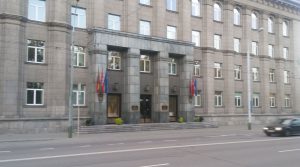
Was it possible to regulate Karabakh conflict in a peaceful way?
As mentioned before, we unambiguously support solving conflicts in negotiations, following principles of international law.
Is it possible that Azeri and Armenian nations would live as friends?
We strongly believe that Azeri and Armenian nations will manage to reconcile and create the future of their people in peace. Since the Second World War the history of Europe provides many examples that it is possible to successfully overcome enmity and join forces for future.
Why, through Eastern Partnership program, Lithuania is drawing Armenia to Europe, while Armenia has allowed a Russian military base, tends to occupy foreign territories, has not condemned terrorist organizations ASALA, Gncak and Dasnakcutiun?
The content and extent of Armenia’s participation in Eastern Partnership program is a sovereign decision of this country. We strongly believe that cooperation of South Caucasian countries with EU opens great opportunities to the region, because EU itself firstly is a project of peace and cohabitation. Regional cooperation is the driving force of economic development and peaceful cohabitation of people.
Did Lithuania act correctly when in 2005 Seimas adopted a resolution on Armenian genocide in 1915? Neither then, when resolution was adopted, nor now, none of Lithuanian historians, political scientists, journalists have studied materials in Turkish, Azeri or Armenian (who does not allow foreigners in) archives.
Having itself experienced years of occupation in 1940-1991, tragic for the state and people, Lithuania understands tragedies that other nations have endured. Seimas resolutions on tragic moments of world history strengthen the aim of international community to prevent similar tragedies in the future.
Can Lithuania be called a democratic country, if Lithuanian Academy of Sciences allows Armenian Ambassador and Armenian historians, politicians to hold a discussion on tragic events of 1915, but does not allow the same to Turkish Ambassador and Turkish historians?
The laws of the Republic of Lithuania provide academic freedom to the members of the academic community, the main element of which is the freedom of mind and expression, guaranteed by the Constitution. Lithuanian Academy of Sciences is an independent institution and it could best comment motives of its decisions.
What did Armenian Prime Minister Nikol Pashinian recently come to Lithuania for? This politician clearly did not agree to peacefully, in a friendly manner return Karabakh territories to Azerbaijan. In the years of his rule, Armenia shelled Azeri cities of Ganja, Barda, Tartar, which have nothing to do with Karabakh. Tens of civilians were killed, tens of houses destroyed. Has Lithuania expressed condolences to Azerbaijan for these victims, has she condemned such attacks by Yerevan?
This year Lithuania and Armenia mark the 30th anniversary of diplomatic relations. The visit of the Prime Minister Pashinian of the Republic of Armenia was an important opportunity to evaluate what has been achieved in thirty years in the fields of bilateral relations and draw further prospects of bilateral relations between Lithuania and Armenia, discuss cooperation between EU and Armenia, preparation for 15 December 2021 Eastern Partnership summit.
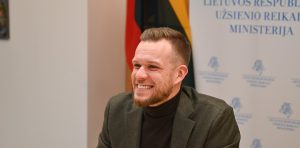
The war of Nagorno Karabakh has caused many painful deaths, we are sorry for the losses, every broken life is invaluable. Lithuania and EU have multiple times expressed sincere sympathies both publicly and in meetings with highest leaders.
Why Lithuania, a democratic country, is interested in preserving Armenian heritage in Karabakh and is not interested in what Armenian separatists did to monuments of Azeri culture, history and religion in Karabakh, during their rule?
Both Armenia and Azerbaijan are important partners to Lithuania, we are interested in ensuring peace and stability in the region.
In the field of preserving heritage abroad, we prioritize such heritage objects that are important to Lithuanian history and culture, not distinguishing any country.
Source of information – Lithuanian Ministry of Foreign Affairs (Department of Communication and cultural diplomacy)
2021.10.28; 04:39

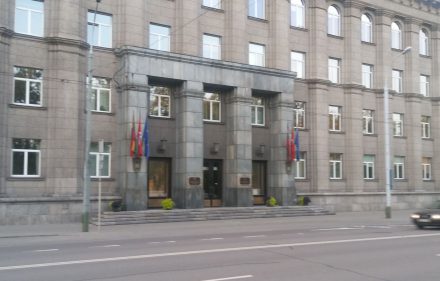
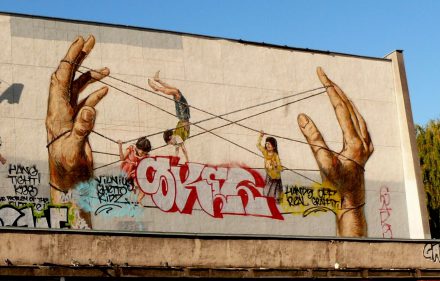
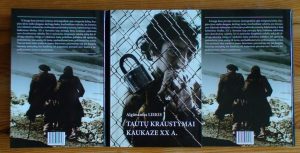
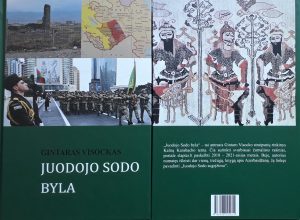
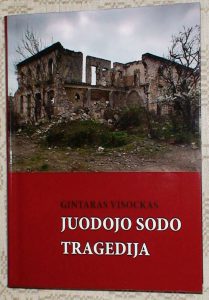
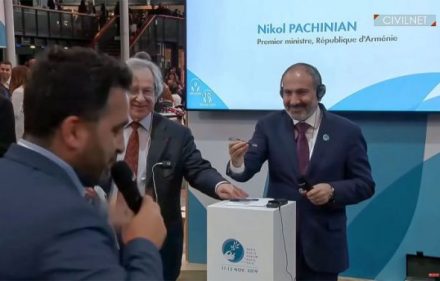
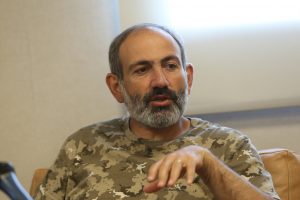
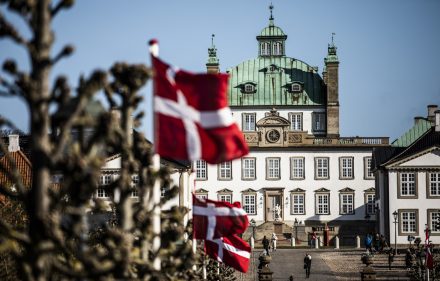

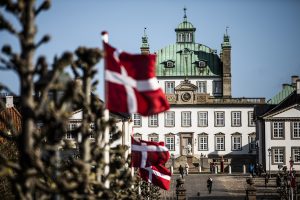

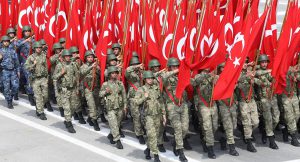
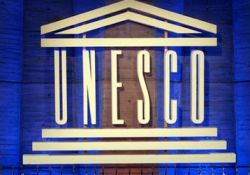
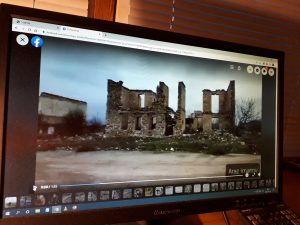
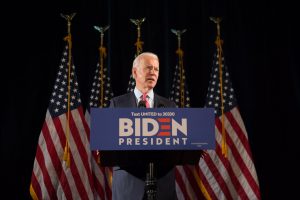
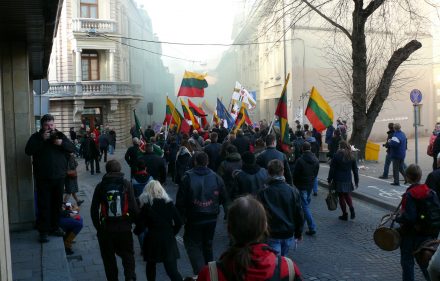
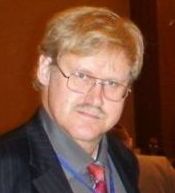

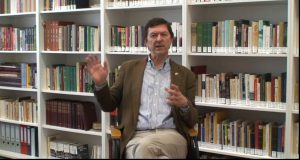
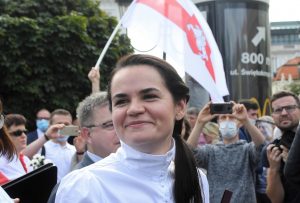
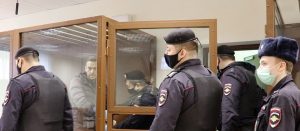
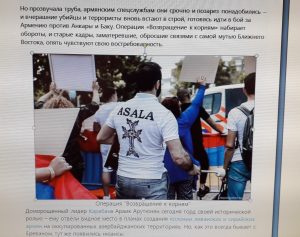
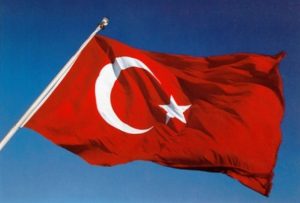

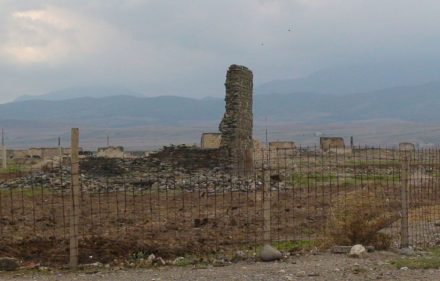
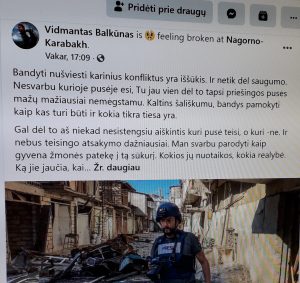
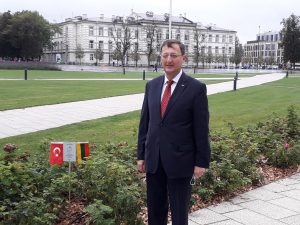


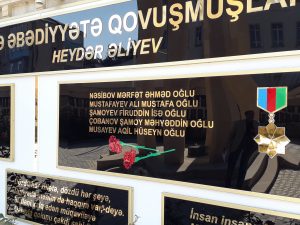

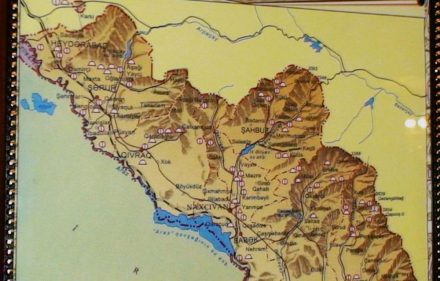
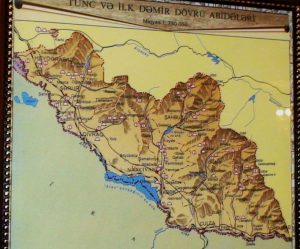

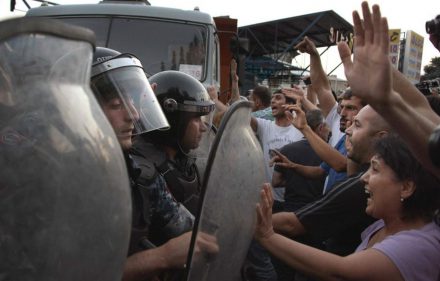
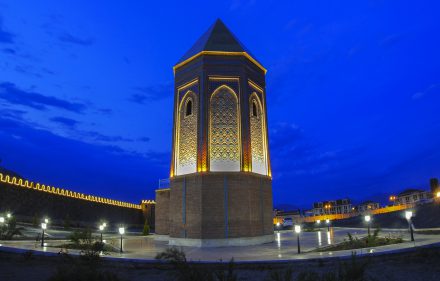
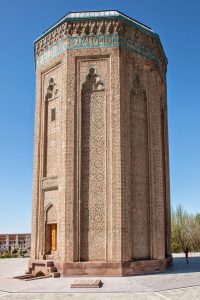
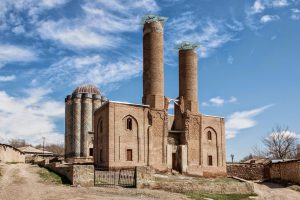 In present Nakhchivan, close attention is paid to the development science and education. There are 2 Universities, a branch of the Azerbaijan National Academy of Sciences, branch of Teacher’s Institute. Schools are not set aside, too – old schools are being restored along with building of new ones – e.g. large, finely equipped schools. The city houses the Palace of Culture, Drama Theatre, Puppet Theater, Carpets Museum, and Historical Museum etc. The finely equipped Olympic Sport Complex has been built. Economy is developing rapidly, new plants, factories and enterprises are set up and many jobs are created.
In present Nakhchivan, close attention is paid to the development science and education. There are 2 Universities, a branch of the Azerbaijan National Academy of Sciences, branch of Teacher’s Institute. Schools are not set aside, too – old schools are being restored along with building of new ones – e.g. large, finely equipped schools. The city houses the Palace of Culture, Drama Theatre, Puppet Theater, Carpets Museum, and Historical Museum etc. The finely equipped Olympic Sport Complex has been built. Economy is developing rapidly, new plants, factories and enterprises are set up and many jobs are created.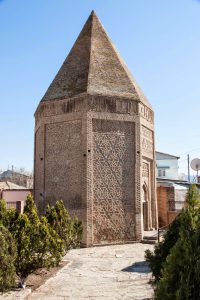
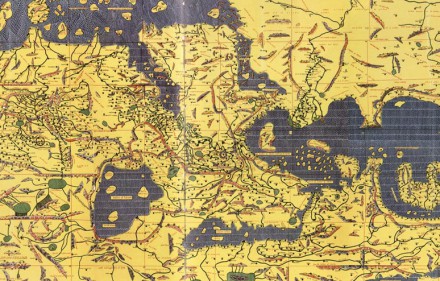
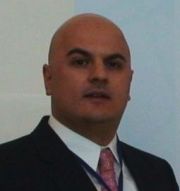 The Climate of Nakhchivan is mostly continental and dry; it is characterized by cold winters while summer seasons are hot and dry. This landlocked territory of Azerbaijan has a border of 246 km long with Armenia that rings Nakhchivan from the north to the southern border where it connects with the Iranian border that stretches for 204 km from the south towards the northwest, and then Turkey shares a narrow border of 11km wide. The prosperous autonomous Republic of Nakhchivan has a population of 390.000 and its territory is only 5500 square kilometers.
The Climate of Nakhchivan is mostly continental and dry; it is characterized by cold winters while summer seasons are hot and dry. This landlocked territory of Azerbaijan has a border of 246 km long with Armenia that rings Nakhchivan from the north to the southern border where it connects with the Iranian border that stretches for 204 km from the south towards the northwest, and then Turkey shares a narrow border of 11km wide. The prosperous autonomous Republic of Nakhchivan has a population of 390.000 and its territory is only 5500 square kilometers.


